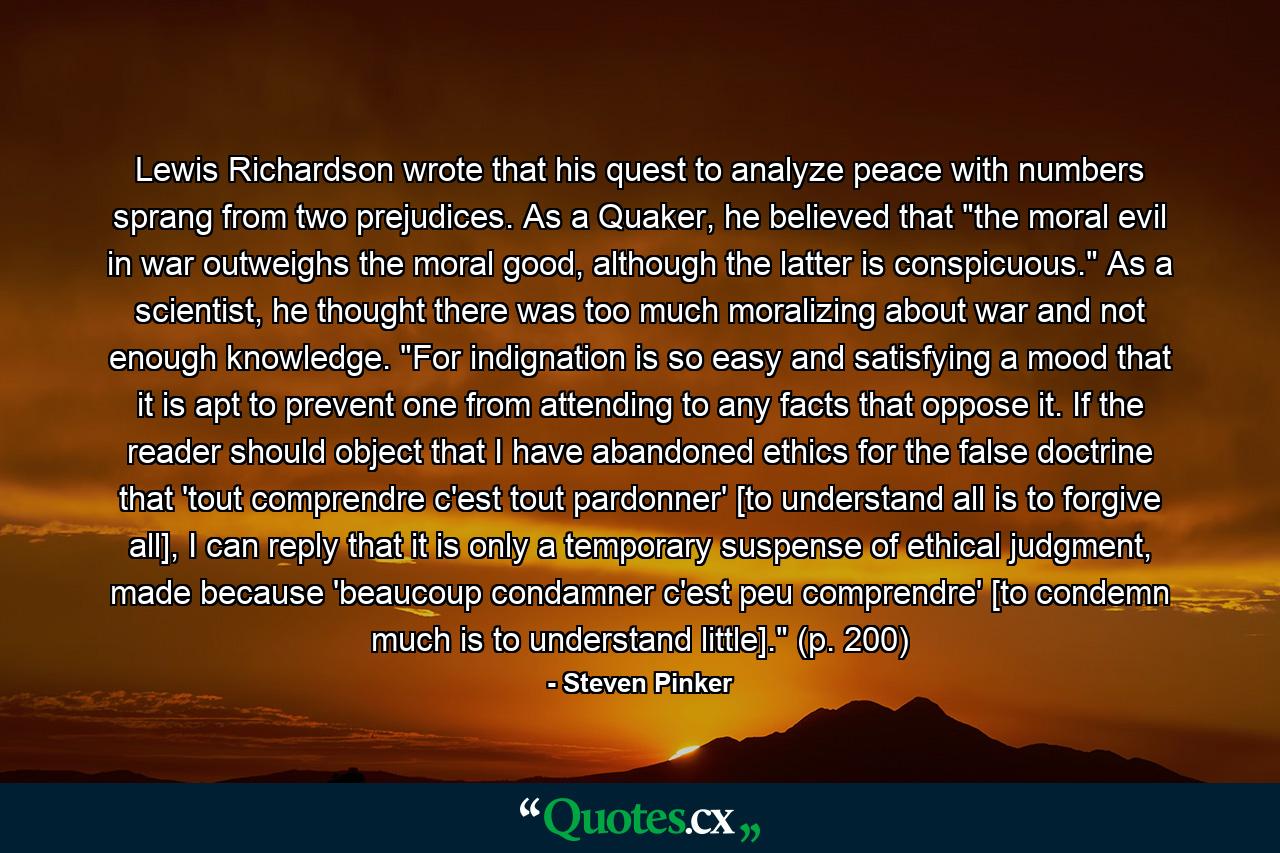Lewis Richardson wrote that his quest to analyze peace with numbers sprang from two prejudices. As a Quaker, he believed that “the moral evil in war outweighs the moral good, although the latter is conspicuous.” As a scientist, he thought there was too much moralizing about war and not enough knowledge. “For indignation is so easy and satisfying a mood that it is apt to prevent one from attending to any facts that oppose it. If the reader should object that I have abandoned ethics for the false doctrine that ‘tout comprendre c’est tout pardonner’ [to understand all is to forgive all], I can reply that it is only a temporary suspense of ethical judgment, made because ‘beaucoup condamner c’est peu comprendre’ [to condemn much is to understand little].” (p. 200)
